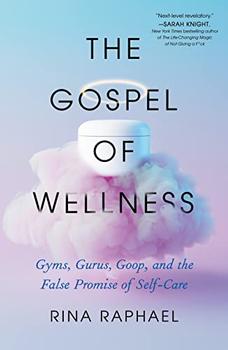Summary | Excerpt | Reviews | Beyond the book | Read-Alikes | Genres & Themes | Author Bio

How Healthcare Became Big Business and How You Can Take It Back
by Elisabeth RosenthalIn the 1976 Academy award-nominated movie Network, newscaster Howard Beale tells his audience to rail against what their society has become. He says, "Things have got to change. But first, you've gotta get mad!…You've got to say, 'I'm as mad as hell, and I'm not gonna take this anymore!'" This could well be the rallying cry of Dr. Elisabeth Rosenthal's book, An American Sickness: How Healthcare Became Big Business and How You Can Take It Back. I was angry by the end of the introduction and I challenge anyone who reads even a small portion of the book to feel differently.
Rosenthal states her premise in the first sentence: "In the past quarter century," she writes, "the American medical system has stopped focusing on health or even science. Instead it attends more or less single-mindedly to its own profits." She goes on to define the various parties involved in our healthcare system (insurers, doctors, hospitals, drug companies) and, using real-life examples and plenty of documentation, demonstrates how each has moved from a model dedicated to providing the best care possible to one primarily concentrated on the organization's bottom line – often to the detriment of the patient. Rosenthal informs her readers about abuses: how lobbyists have influenced government policies that benefit drug companies and insurers; how drug and device manufacturers skirt laws, take advantage of vagaries in regulations, and "game the system" to reap obscene profits; and how deceptive accounting practices lead to incomprehensible – and often inaccurate – bills that patients and insurers pay without question.
The book abounds with horror stories such as a woman with multiple sclerosis who's been driven into bankruptcy and poorer health because the medication that keeps her alive keeps getting more expensive, and the person who is in constant pain and can no longer walk because the manufacturer of her hip joint replacement used a loophole in regulations to avoid testing the device (the appliance "wasn't even put in a dog before it was put in humans.") The author also talks at length about the abuses heaped on the healthcare system by "Big Pharma," including their manipulation of patents to force people to purchase new drugs that are just as efficacious as older (but now deliberately unavailable) drugs (read how this is done, in the Beyond the Book); jacking up prices just because they can; and their spending billions of dollars a year on advertising that encourages people to insist on expensive treatments even if they're ineffective ("Ask your doctor if [insert drug here] is right for you!"). For example:
Jublia, a topical drug for toenail fungus approved in 2014, was advertised during the 2016 Super Bowl. A little bottle of the solution sells for between $550 and $650 and the full forty-eight-week course of treatment for all your toes costs over $20,000. But Jublia's cure rates are under 20 percent. Lamisil (terbinafine), a pill that does the same with a higher cure rate, costs under $20. Of course, that isn't mentioned in the ad.
The book becomes a litany of how the cards are stacked against patients, and it not only makes one angry but depressed and frustrated; by the end of the first section I personally felt rather hopeless and as if everyone in the medical industry was out to get me (or at least my life's savings).
Fortunately, Rosenthal also offers concrete suggestions on gaining more control over each part of the medical process. Under "Drug and Medical Device Costs," Rosenthal recommends learning all you can about the prescriptions you're taking. Some pills, for example, are a newer combination of two older drugs and you can save a significant amount of money if you're willing to take two pills instead of one. Also, check dosage; one person discovered after a huge increase in the cost of her prescription that it was considerably less expensive to purchase a higher dosage of the same medicine and cut the pill in half. The author goes on to write about "System Change" – concrete items we should be demanding from our lawmakers such as allowing the import of drugs from other countries and revamping the drug and device approval process. Also noteworthy are the appendices that include helpful tools such as links to price calculators for procedures and drugs; tools for vetting hospitals; and templates for letters protesting one's medical bills.
An American Sickness is truly a must-read book for every U.S. resident; it's incredibly eye-opening and informative, and has the potential for sparking reform given a wide enough audience. Rosenthal's crisp writing style makes the book eminently readable and even those not typically drawn to non-fiction will find it holds their attention. Book groups in particular will find lots of great fodder for discussion.
![]() This review was originally published in The BookBrowse Review in November 2017, and has been updated for the
March 2018 edition.
Click here to go to this issue.
This review was originally published in The BookBrowse Review in November 2017, and has been updated for the
March 2018 edition.
Click here to go to this issue.

If you liked An American Sickness, try these:

by Rina Raphael
Published 2023
Journalist Rina Raphael looks at the explosion of the wellness industry: how it stems from legitimate complaints, how seductive marketing targets hopeful consumers–and why women are opening up their wallets like never before.

by Jamie Ducharme
Published 2022
A propulsive, eye-opening work of reporting, chronicling the rise of Juul and the birth of a new addiction.
Your guide toexceptional books
BookBrowse seeks out and recommends the best in contemporary fiction and nonfiction—books that not only engage and entertain but also deepen our understanding of ourselves and the world around us.